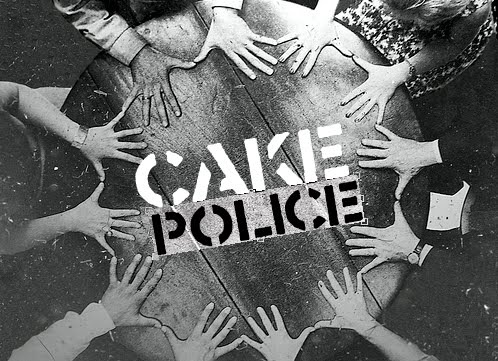From Slavoj Zizek's latest book, First as Tragedy, Then as Farce:
"In the middle of April 2009, I was sitting in a hotel room in Syracuse, hopping between two TV programs: a documentary on Pete Seeger, the great American folk singer of the Left, and a Fox News report on the anti-tax 'tea-party' in Austin, Texas, with a country singer performing an anti-Obama song full of complaints about how Washington is taxing hard-working ordinary people in order to finance the rich Wall Street financiers. The short-circuit between the two programs had an electrifying effect on me, with two especially noticeable features. First, there was the weird similarity between the two musicians, both formulating a populist anti-establishment critique of the exploitative rich and their state, and both calling for radical measures, up to and including civil disobedience - another painful reminder that, with regard to forms of organization, the contemporary radical-populist Right strangely reminds us of the old radical-populist Left. Second, one cannot but notice the fundamental irrationality of the 'tea party' protests: Obama effectively plans to lower taxes for over 95 percent of hard-working ordinary people, proposing to raise them for only the upper couple of percentiles - that is, for the 'exploitative rich.' So how is it that people are literally acting counter to their own interests?
"Thomas Frank aptly described this paradox of contemporary populist conservatism in the US: the economic class opposition (poor farmers and blue-collar workers versus lawyers, bankers, and large companies) is transposed or re-coded onto the opposition of honest, hard-working Christian Americans versus the decadent liberals who drink lattes and drive foreign cars, advocate abortion and homosexuality, and mock patriotic sacrifice and simple 'provincial' ways of life, and so forth. The enemy is thus perceived as the 'liberal' elite who, through federal state intervention - from school-busing to legislating that Darwinian theory and perverted sexual practice be taught in class - want to undermine the authentic American way. The conservatives' main economic demand is therefore to get rid of the strong state which taxes the population to finance its regulatory interventions; their minimal economic program is thus: 'fewer taxes, fewer regulations.' From the standard perspective of the enlightened and rational pursuit of self-interest, the inconsistency of this ideological stance is obvious: the populist conservatives are literally voting themselves into economic ruin. Less taxation and deregulation means more freedom for the big companies who are driving impoverished farmers out of business; less state intervention means less federal help for small businessmen and entrepreneurs.
"Although the 'ruling class' disagrees with the populists' moral agenda, it tolerates the 'moral war' as a means of keeping the lower classes in check, that is, it enables the latter to articulate their fury without disturbing the economic status quo. What this means is that the culture war is a class war in a displaced mode - pace those who claim that we live in a post-class society ... "
Subscribe to:
Post Comments (Atom)

I'd be like... way more likely to read any of these if you gave some kind of commentary, summary, explanation, context etc. forever instead of just straight up copy pasting.
ReplyDeleteIts hard to get a dialogue going when I feel like I'm responding to Slavoj Zizek (whoever the fuck that is), instead of an actual person who I could probably relate to because were apart of the same blog or whatever.
Slavoj Zizek is a Hegelian philosopher, who is definitely one of the best and most famous philosophers currently working. He's also one of the funniest, which make his books and essays not just rewarding, but enjoyable to read. As you can see up there ^^^ he also frequently deploys and analyzes elements of pop culture as illustrations. He also extolls communism as an ideal political system, thus rewarding him with a post on this blog from sheilaownscommunism.
ReplyDeleteThis comment has been removed by the author.
ReplyDeleteps.
ReplyDeletei want to reiterate that i love this post, these excerpts are always a pleasure to find, thank you. and that ur kind of an asshole for liking that they cant sue you because they support communism.
My point was more along the lines of, it'd be much more engaging to the readers of this blog to include some sort of voice outside of the quoted text. I can only speak for myself, but theres something about a large block of tiny text that begs to be ignored, especially if theres no apparent context to it. Its a valuable exerpt, no doubt, but I'd rather feel that I'm responding to the poster, instead of the author (who I'm sure could give a fuck about what I think). Respects to the poster, but for all I know the name could be ironic ;)
ReplyDeleteJust tryna say, theres something about straight up copy pasting thats kind of weak.
As for the text!
ReplyDeleteI have a problem with the idea that there's anything wrong with voting against your own interests. The author claims it is irrational for people to act (vote) against their own interests. Why? Isn't it the focus of the communist to work against personal interests(economic or otherwise) to achieve the realized vision of their favored economic structure? I think the same can be said about these conservatives, regardless if they benefit from it or not.
He claims that because the conservative populist economic stance is irrational, the debate turns into a cultural one. While that may be partly true, its not the whole truth. They may be ignorant to their own interest, but either way, don't call them irrational for voting against it.
"Only in America can a homeless person living in a cardboard box oppose raising taxes on millionaires because he hopes to be a millionaire some day."